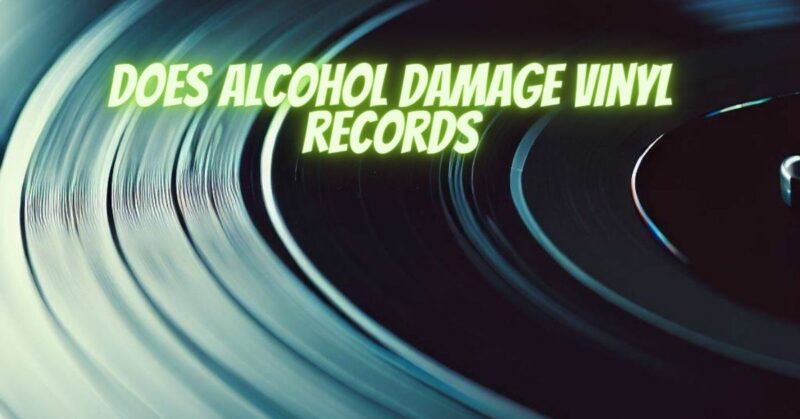Vinyl records are cherished for their analog warmth and the nostalgia they evoke. Collectors and audiophiles often go to great lengths to preserve their records in pristine condition. But what about the occasional encounter with alcohol? Whether it’s a careless spill or an attempt to clean your vinyl, the question lingers: Does alcohol damage vinyl records? In this article, we’ll explore the impact of alcohol on your cherished vinyl collection and provide guidance on how to keep them safe.
The Vulnerability of Vinyl Records
Vinyl records are not impervious to damage. Their grooves, though resilient, can be affected by various elements, including dust, dirt, and, yes, liquids like alcohol. Understanding the potential harm is crucial for record collectors.
Alcohol and Vinyl Records: The Risks
Alcohol, particularly when used in certain ways, can pose risks to your vinyl records:
- Potential for Groove Damage: Alcohol, especially in high concentrations, can soften and potentially damage the vinyl’s grooves. This is particularly true for alcohol with a high alcohol content, such as rubbing alcohol.
- Residue and Residue Removal: Alcohol-based cleaners might leave behind a residue after cleaning your records. This residue can affect playback and sound quality.
- Label Damage: Alcohol can also harm the labels on your records. Labels may become discolored, wrinkled, or even disintegrate if they come into contact with alcohol.
How to Use Alcohol Safely with Vinyl Records
If you find yourself in a situation where you need to clean your vinyl records using alcohol, there are safer ways to do so:
- Dilution: If you must use alcohol, dilute it with distilled water. A common ratio is 1:3, meaning one part alcohol to three parts water. This reduces the risk of groove and label damage.
- Gentle Cleaning: Be gentle when cleaning your records. Use a soft, anti-static brush or a microfiber cloth. Avoid applying excessive pressure, as this can cause damage.
- Rinse Thoroughly: If you’ve used a diluted alcohol solution, be sure to rinse your records thoroughly with distilled water to remove any remaining residue.
- Dry Properly: After cleaning, allow your records to air dry or use a soft, lint-free cloth to pat them dry. Avoid abrasive or paper towels.
- Outer Sleeve Protection: Always store your records in anti-static inner sleeves and place them in outer sleeves for added protection against dust and moisture.
Preventing Alcohol-Related Vinyl Damage
The best way to protect your vinyl records from alcohol damage is prevention:
- Establish a No-Liquid Zone: When playing records, keep drinks, including alcoholic beverages, at a safe distance to minimize the risk of spills.
- Use a Dust Cover: A dust cover or turntable lid provides an added layer of protection against accidental spills.
- Handle Records with Care: Always handle records by the edges or the label to avoid transferring oils and dirt from your fingers to the grooves.
- Regular Cleaning: Routinely clean your records with a dedicated record brush to minimize the accumulation of dust and dirt.
Vinyl records are delicate and require proper handling and maintenance to preserve their sound quality and longevity. While alcohol can pose some risks to your cherished collection, responsible use for cleaning can be safe. Remember that prevention is the best strategy for keeping your vinyl records in pristine condition. Handle your records with care, maintain a clean listening environment, and enjoy the analog warmth they bring to your audio experience for years to come.


